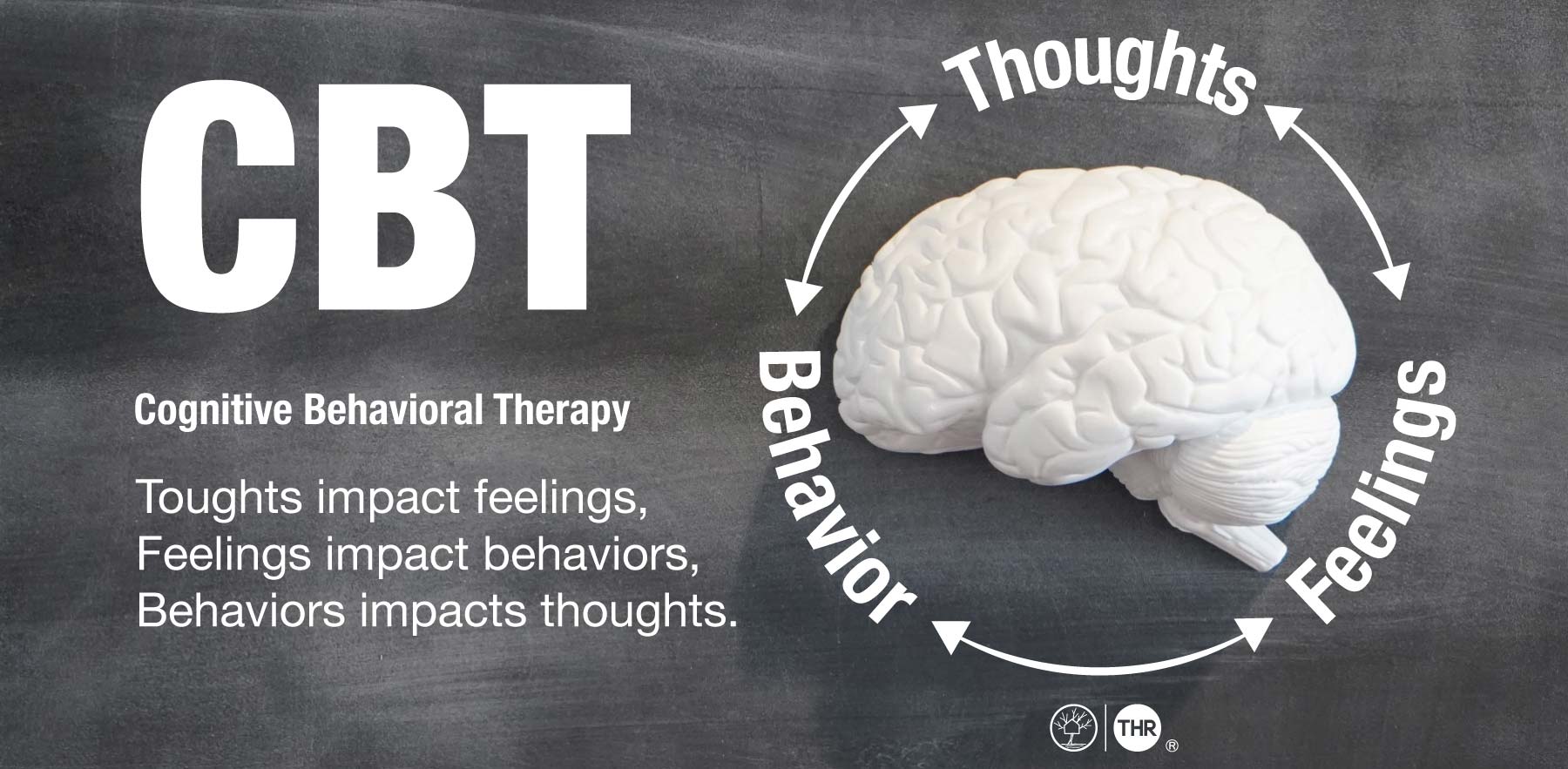Cognitive Behavioral Therapy CBT
Cognitive Behavioral Therapy (CBT)
What is Cognitive Behavioral Therapy (CBT)?
Cognitive Behavioral Therapy (CBT) is a type of psychotherapy. It is based on the idea that feelings, thoughts, and behaviors are interconnected. It was initially developed to treat depression. CBT has demonstrated efficacy in treating various mental health conditions, including addiction. By interrupting the cycle of negative thoughts leading to negative emotions and subsequently negative behaviors, such as substance abuse, CBT can be helpful.
Furthermore, there are similarities between this interconnected cycle and the cycle of addiction. Combined with Cognitive Behavioral Therapy (CBT), holistic treatment helps you understand the root of addiction and how to develop sustainable addiction recovery skills effectively.

How Does Cognitive Behavioral Therapy (CBT) Work?
CBT is a short-term, goal-oriented therapy that typically lasts for 12 weeks or less. During CBT sessions, patients work with a therapist to identify and change negative patterns of thinking and behavior that contribute to addiction. The therapist helps individuals identify negative thoughts, emotions, and behaviors that fuel their addiction. Once they become aware of these patterns, they can start to change them.
What Are the Benefits of CBT for Addiction Treatment?
CBT can help individuals in addiction recovery by teaching them how to identify and change negative thought patterns, manage triggers and cravings, develop healthy coping mechanisms, communicate effectively, and build self-esteem. CBT is an evidence-based therapy that is effective in treating substance use disorder, as it addresses the root cause of the problem. [1]
How is CBT Used in Addiction Treatment?
In addiction treatment, CBT is usually one of the holistic treatments included in a personalized treatment plan. It can be used in both inpatient and outpatient settings. The therapist works with the individual to identify specific triggers and develop strategies to manage them. CBT can help individuals learn to cope with stressors and negative emotions, reduce the likelihood of relapse, and achieve lasting recovery.
Origins of CBT
CBT, or cognitive behavioral therapy, originated in the field of psychology. It was developed in the 1960s by Aaron Beck, who was a psychiatrist at the University of Pennsylvania. Beck observed that his patients often had negative thoughts and beliefs that were causing them to feel depressed or anxious, and he developed CBT as a way to help them change these thoughts and beliefs.
Initially, CBT was developed as a treatment for depression. Still, over time, it has been used to treat a wide range of mental health conditions, including post-traumatic stress disorder (PTSD), anxiety disorders, obsessive-compulsive disorder (OCD), and substance use disorders. CBT is a short-term therapy that is typically delivered over a period of 12-20 sessions, and it focuses on teaching patients practical skills and strategies to manage their thoughts, feelings, and behaviors. [2]
CBT Program for Addiction Treatment in Colorado
At Tree House Recovery, we offer a comprehensive addiction treatment program that includes evidence-based therapies such as Cognitive-Behavioral Therapy (CBT). Cognitive-behavioral therapy for alcohol abuse and substance abuse is extremely helpful in getting your brain wiring back to the way it is intended to be. Our CBT program is designed to help individuals in addiction recovery by providing them with the tools and skills they need to overcome addiction. Our approach is holistic, and we complement CBT with other therapies, such as exercise therapy, to build physical and emotional strength.
Contact our team today to learn more about our CBT program and other addiction treatment serviceswe offer. Call us today to learn more about CBT and how Tree House Recovery’s Program for Addiction Treatment (720) 640-0202.
It's Lifestyle Recovery
There is a Better Way to Overcome Addiction – A Health-Centered Program.
- MIND
- BODY
- SOCIAL

Author
Robert Funk: Addiction Writer
